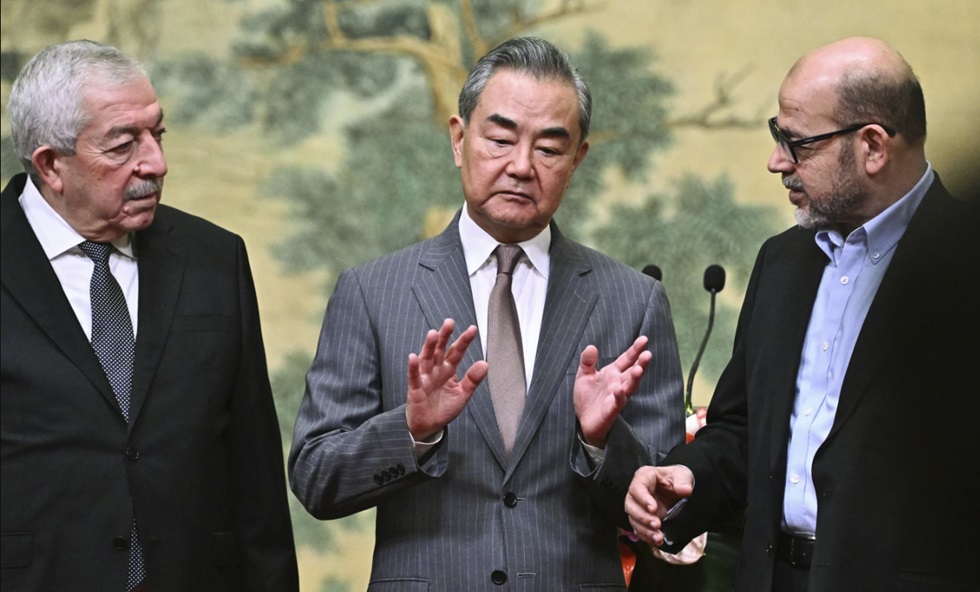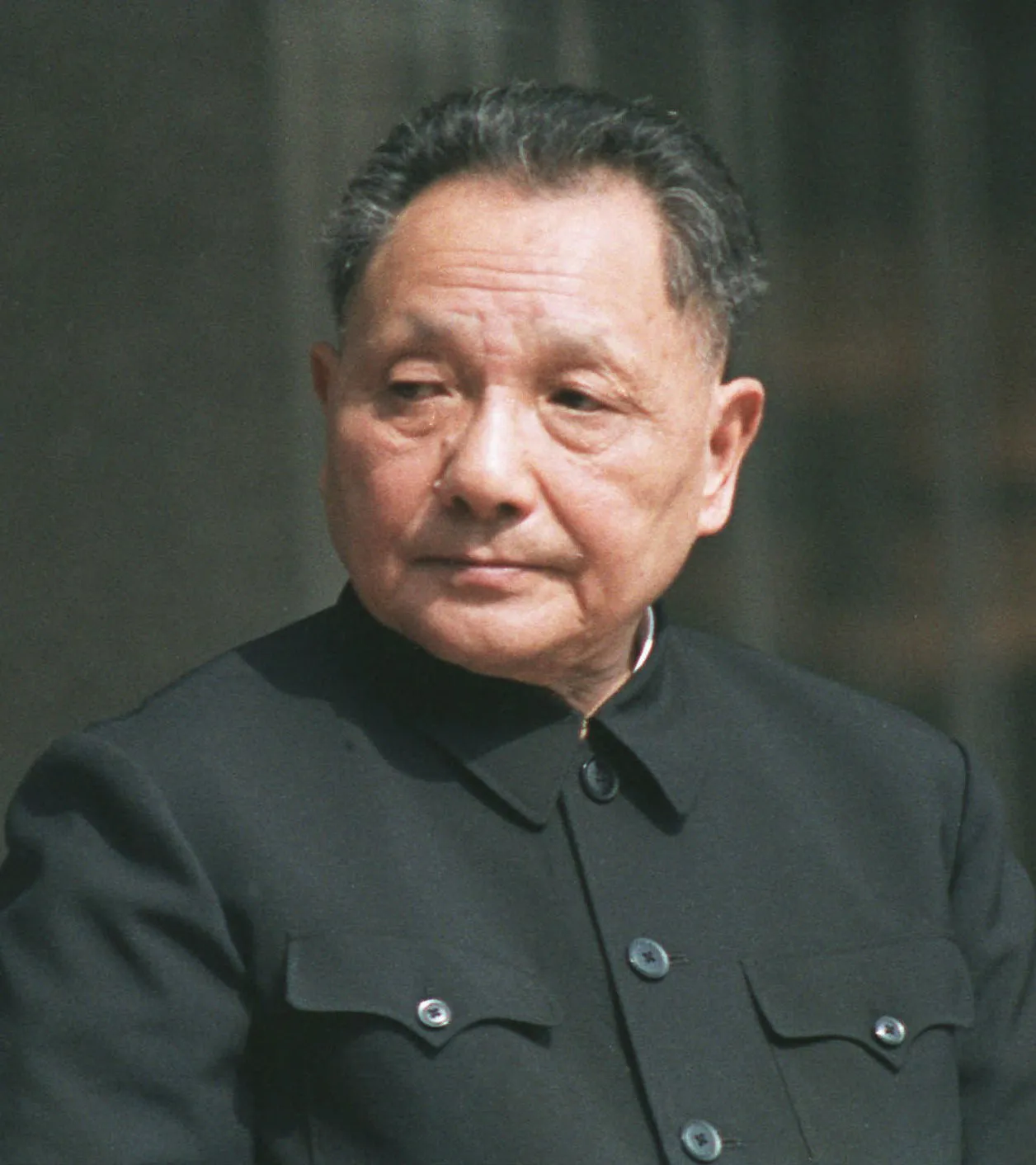
China's Foreign Minister Wang Yi, center, hosts Mahmoud al-Aloul, left, Vice Chairman of Fatah, and Mussa Abu Marzuk, a senior member of Hamas, at the Diaoyutai State Guesthouse in Beijing, Tuesday, July 23, 2024. | Pedro Pardo / Pool photo via AP
Leaders representing 14 Palestinian factions and forces—including Hamas, Fatah, the Popular Front for the Liberation of Palestine (PFLP), the Democratic Front for the Liberation of Palestine (DFLP), the Palestinian People’s Party, and the Palestinian Islamic Jihad (PIJ), and others—have resolved to form a national unity government after three days of discussion in Beijing mediated by China’s foreign minister, Wang Yi.
The agreement, called the “Beijing Declaration to End the Division and Strengthen Palestinian National Unity,” is being hailed as a significant step towards unity and overcoming the decades-long division among the main political groups in Palestine. United Nations Secretary-General Antonio Guterres welcomed the Beijing Declaration shortly after its signing and expressed his appreciation for the diplomatic efforts being made by China in facilitating the process.
Wang characterized the agreement as “an historic moment for the cause of Palestine’s liberation.” The Palestinian factions said that they welcome the recent ruling of the International Court of Justice, which confirmed the illegality of the Israeli occupation of Palestinian territories and the settlements constructed there.
A unified statement from the factions expressed “their high appreciation for the sincere efforts made by the People’s Republic of China based on its support for the rights of the Palestinian people and its keenness to end the division and unify the Palestinian position.”
The Beijing Declaration follows a similar meeting held by the General Council of the Palestinian Appeal, a body in which the Palestinian People’s Party plays a key role. That meeting, held on June 8, stressed that the starting points of “unity, resistance, steadfastness, and liberation” should result in “building and strengthening the role of Palestinian national forces…within a single Palestinian framework” and strengthening the concept of Palestinian national unity.
The eight-point declaration states that all sides will agree to the “formation of a temporary national unity government by agreement of the Palestinian factions” and that “the formed government shall exercise its powers and jurisdictions over all Palestinian territories, affirming the unity of the West Bank, Jerusalem, and the Gaza Strip, with the government starting the unification of all Palestinian institutions in the territories and the preparation for holding general elections.”
The unified government will be formed under the umbrella of the Palestine Liberation Organization, which is recognized internationally as the representative of the Palestinian people.
The declaration also affirms that the unified factions will “stand against and stop any attempts to displace our people” from the Gaza Strip, the West Bank, and Jerusalem “and uphold the illegality of settlements and their expansion as determined by the resolutions of the U.N. Security Council, the U.N. General Assembly, and the International Court of Justice.”
The factions reaffirmed their commitment to the establishment of an independent Palestinian state with its capital in Jerusalem in accordance with U.N. resolutions, especially 181 and 2334, and ensuring the right of return for refugees.
China supports the idea of a “two-state solution” in the Israel-Palestine conflict and has called for a ceasefire in Gaza since the beginning of the current war. Bi Haibo, a spokesperson for China’s foreign ministry, said, “When some other countries add oil to the fire, we try our best to bring peace.”
Israel’s brutal assault on Gaza and the rapid escalating settler violence in the West Bank since Hamas’ attack on Oct. 7 has led to an estimated 40,000 deaths, the majority of which are women and children. A recent report from The Lancet said “it is not implausible to estimate that up to 186,000 or even more deaths could be attributable to the current conflict in Gaza,” which would be between 7-9% of the entire population.
The necessity of Palestinian national unity has become urgent. The immediate task, according to the factions, is to “work to lift the barbaric siege on our people in the Gaza Strip and the West Bank and deliver humanitarian and medical aid without restriction or condition.”
The Palestinian factions saluted the “steadfastness of their people” and also expressed solidarity with “all the forces, countries, and student, popular, and trade union solidarity movements that support the struggle of the Palestinian people on the ground—politically, legally, and diplomatically.”
We hope you appreciated this article. At People’s World, we believe news and information should be free and accessible to all, but we need your help. Our journalism is free of corporate influence and paywalls because we are totally reader-supported. Only you, our readers and supporters, make this possible. If you enjoy reading People’s World and the stories we bring you, please support our work by donating or becoming a monthly sustainer today. Thank you!






